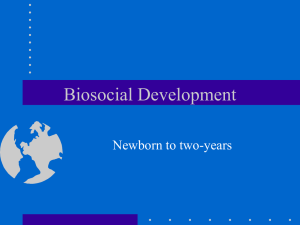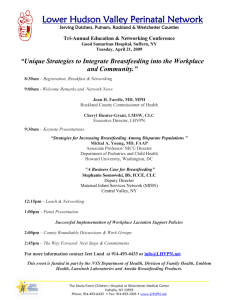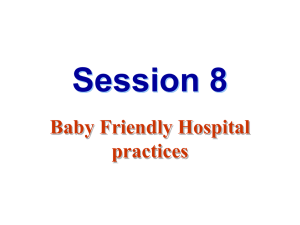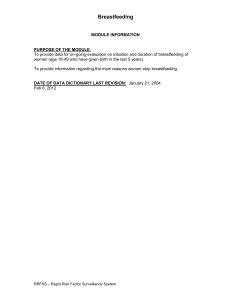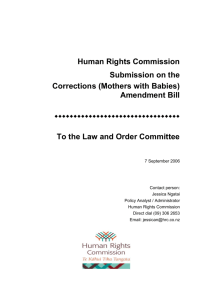After all, it`s only natural
advertisement
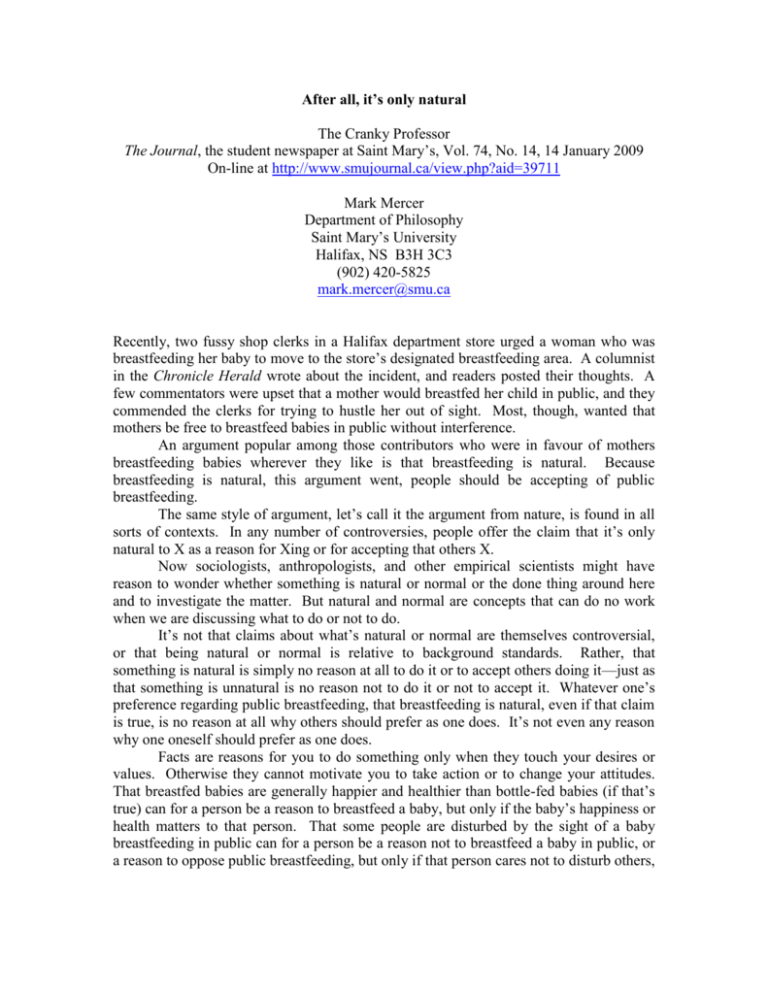
After all, it’s only natural The Cranky Professor The Journal, the student newspaper at Saint Mary’s, Vol. 74, No. 14, 14 January 2009 On-line at http://www.smujournal.ca/view.php?aid=39711 Mark Mercer Department of Philosophy Saint Mary’s University Halifax, NS B3H 3C3 (902) 420-5825 mark.mercer@smu.ca Recently, two fussy shop clerks in a Halifax department store urged a woman who was breastfeeding her baby to move to the store’s designated breastfeeding area. A columnist in the Chronicle Herald wrote about the incident, and readers posted their thoughts. A few commentators were upset that a mother would breastfed her child in public, and they commended the clerks for trying to hustle her out of sight. Most, though, wanted that mothers be free to breastfeed babies in public without interference. An argument popular among those contributors who were in favour of mothers breastfeeding babies wherever they like is that breastfeeding is natural. Because breastfeeding is natural, this argument went, people should be accepting of public breastfeeding. The same style of argument, let’s call it the argument from nature, is found in all sorts of contexts. In any number of controversies, people offer the claim that it’s only natural to X as a reason for Xing or for accepting that others X. Now sociologists, anthropologists, and other empirical scientists might have reason to wonder whether something is natural or normal or the done thing around here and to investigate the matter. But natural and normal are concepts that can do no work when we are discussing what to do or not to do. It’s not that claims about what’s natural or normal are themselves controversial, or that being natural or normal is relative to background standards. Rather, that something is natural is simply no reason at all to do it or to accept others doing it—just as that something is unnatural is no reason not to do it or not to accept it. Whatever one’s preference regarding public breastfeeding, that breastfeeding is natural, even if that claim is true, is no reason at all why others should prefer as one does. It’s not even any reason why one oneself should prefer as one does. Facts are reasons for you to do something only when they touch your desires or values. Otherwise they cannot motivate you to take action or to change your attitudes. That breastfed babies are generally happier and healthier than bottle-fed babies (if that’s true) can for a person be a reason to breastfeed a baby, but only if the baby’s happiness or health matters to that person. That some people are disturbed by the sight of a baby breastfeeding in public can for a person be a reason not to breastfeed a baby in public, or a reason to oppose public breastfeeding, but only if that person cares not to disturb others, or not to disturb them in this way. The naturalness of breastfeeding, or of being disturbed by the sight of breastfeeding, is neither here nor there. One might respond that arguments from nature have their point not in the context what to do, but rather in the context what to value. Our values should be those that are natural or normal for people to have. We should value in line with our human nature. But, again, that a value is in line with our human nature would be a reason for one to adopt that value only if one cares to be in line with one’s human nature. That is, facts about human nature have normative significance only for those for whom such facts already have motivational significance. By the way, I doubt that there are any such people. But here’s a consideration that should incline us not to want to be such a person. Imagine that empirical scientists convince us by evidence and argument that breastfeeding children, at least in public, is unnatural or abnormal. Would you now cease to work hard to remove whatever barriers still prevent women from breastfeeding their babies wherever they want to? —30—
